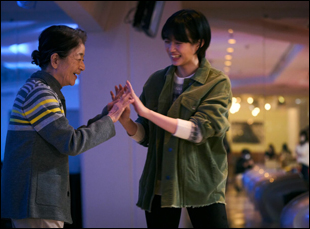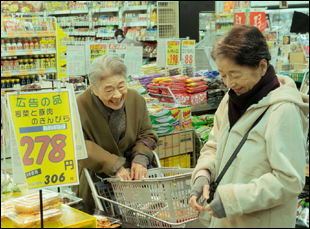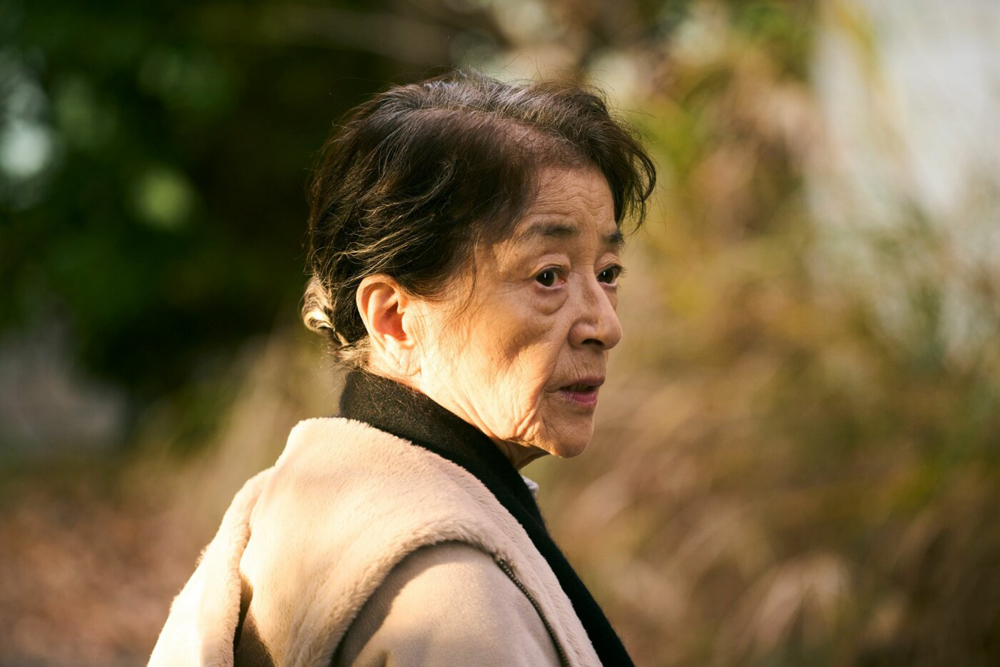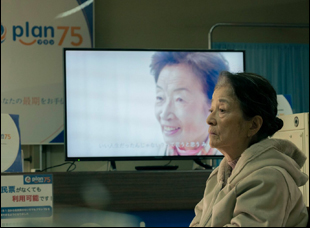If anyone was familiar with the perils of a cultural fixation on youth, it was Chie Hayakawa.
“I started thinking about being a director when I was like 13 years old, but [it happened in] a roundabout way even though I studied filmmaking in New York at college,” says Hayakawa, whose feature debut “Plan 75” is irrevocable proof that good things come to those who wait. “I couldn’t actually start filmmaking until my mid-thirties because I had kids, but now I think it ended up in a good result. I don’t think I could make this film in my twenties or thirties because of all I’m going through and my view of the world is changing. I found the right material to make a film, so now I feel lucky to have my first feature at my current age.”
The fact that Hayakawa had put aside the intense pressure to make good on an education in film and photography when she was younger may not have had much of an impact in what she chose to focus on in what would become her first film, but it does underscore why it so passionately fights against the growing perception in her native Japan — and it would seem globally — that a person is only as valuable to society as the contribution to the economy, making the elderly in particular a target for irrational anger. When this boiled over into a real-life mass shooting in 2016, Hayakawa was inspired to imagine a future in which senior citizens would be incentivized to take their own lives with the assistance of the government, perhaps relieving themselves of the burdens of older age such as physical impairment or loneliness, but being made to feel as if they themselves were the burden, and while the impetus was a shocking act of violence, the writer/director gently illustrates how the most heinous crimes could be more subtle and endemic as an entire culture can turn its back on those they feel are past their prime.
Led by the luminous Chieko Baishô as Michi, a recently laid off hotel employee who is contemplating the Plan 75 program as she has difficulty finding other work that could keep a roof over her head in her seventies, the film taps into a growing consciousness among a younger generation about how their own attitudes are shaping the future as Hiromu (Hayato Isomura), a functionary in Plan 75’s administration is forced to confront its impact when his estranged uncle applies for the program, and Maria (Stefanie Arianne), a caregiver from the Phillippines sees the purpose of her work change from improving the quality of life for her clients to considering only what they leave behind for others by processing their earthly remains. Hayakawa doesn’t look past the isolation that the elderly feel as their social circle starts to pass away and doors that once were open to them in their community appear now to be closed, but as the film itself begins to bring its various strands together, the writer/director tugs at both the heart and the notion of a social fabric to tighten up and considers the human experience as a continuum that requires vigilance across the spectrum of age to remain as vital as it can possibly be with compassion.
Since its premiere at Cannes earlier this year where Hayakawa was honored with a special Camera d’Or award, “Plan 75” has been generating empathy and discussion around the world and after its recent selection as Japan’s official entry to the Oscars and its impending release in the US, the director spoke about how she set about making the provocative drama, having its themes feel especially relevant during a time of a global pandemic and luring an iconic performer such as Baishô to star in the film.
Actually, I had a kind of anger towards Japanese society in the past 20 years, which is getting more and more intolerant to the elderly, the disabled and the poor and this incident happened in 2016 [where] the guy who worked in the nursing home for the disabled killed almost 19 people. He said in his manifesto that he did it because he believed that the disabled wanted to leave because they are a burden for society, and they’re not productive. That’s why it’s good to kill these people for the country. And I felt scared and angry that kind of atmosphere was already existing in our society, and that tendency we [seemed to be] heading for, so I decided to make this film.
You have younger characters in the film, even though the focus is on the elderly. How did you bring in other points of view?
Yes, these two younger characters are people working under the system and they initially don’t have a sense of guilt because it’s their job. They don’t doubt what they’re doing at first and they don’t imagine what’s going to happen to these elderly after they leave their office, but by meeting his uncle or Michi, the old lady, they start have compassion or empathy to these people, and realize how inhuman the system is. That addition was one addition of the hope in the story [because] before the pandemic, the story was more depressing. I just raised the question in this film, but I didn’t show any solution, like [presenting] a doom we are moving towards, but by experiencing the pandemic era, my concern was should I make this kind of depressing story for the world that’s already so depressed. There’s so many people are dying right now, I wanted to have a ray of hope in this film, so I gradually changed the ending and put in this idea that we should live, no matter which situation we are in.

Yes, the audience can really attach to her. They will naturally feel, “Please don’t let her die” when they’re watching the film. She’s really wonderful and working with her was a terrific experience. It’s actually very rare that she is working for a first-time director like me. She’s such a legendary actress in Japan, but she really understands the concept of this film and at first she didn’t want to play the role and said she stopped reading halfway through because the story is too cruel and depressing. But the next day she started reading again, and [with] the last scene, she understood the choice that [Michi] took at the last moment, so then she decided to take the role. Because the protagonist of this story is really living in hardship, I didn’t want to make her look miserable. I wanted her to have dignity and her beauty coming from her inside and to show her as a very strong woman, so Chieko Baishô is [someone] who could show her strength and beauty as a human being.
Was it interesting to film a story about isolation during COVID?
On set, it was really difficult, especially to communicate with each other during the pandemic. We all covered half of our face and we couldn’t share meals. It was difficult time for me, [especially] because this is my first film. But going through the pandemic, I saw a lot of people so isolated in society — not only the elderly, but even college students and people in their twenties, thirties or forties living alone. I already had in mind the fact that it’s not [just] the elderly that we need to connect with, but that what we are losing now makes society cold and apathetic and in such society, the system like Plan 75 could happen.

Yes, it’s amazing it started in June and it’s still showing jn Japan and [now] I think it’s shown in theaters in more than 20 countries. I see a lot of people say it’s scarier than a horror film, which means they share the same kind of sense of danger to our society in other countries in Europe and Asia. [A Plan 75] could happen in our future, or they understand this kind of intolerant atmosphere in society [where] they are putting the value based on productivity. But only in the Philippines [where] I showed it last week, they said it’s not going to happen because the Philippines has a very different value of life and and a very strong connection to family and helping each other.
[That’s what initially inspired me to create the character of Maria, a Filipino caretaker] because I wanted to make a contrast [between] these two different type of societies. I wanted to have the point of view from the foreigner to look at the Japanese societ and more and more Filipino or more southeast Asian caregivers are coming to Japan to fulfill the labor shortage and they have a really big community and try to support each other even though they’re not family, so that [they have a] warm spirit that we Japanese are missing now. So [when I was recently screening it in the country], I was very glad to hear from them that we’re not going to let the elderly feel isolation or treat it like that.“Plan 75” opens on April 21st in New York at IFC Center, May 5th in Los Angeles at the Laemmle Glendale, and Columbus, Ohio at the Gateway Film Center on June 2nd.





